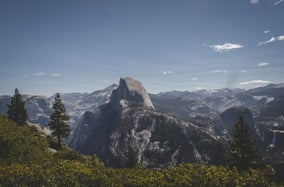
Water: the urban/rural divide
A report from the BBC says that Nestle extracted 36 million gallons of water from a national forest in California last year to sell as bottled water, even as Californians were ordered to cut their water use because of a historic drought in the state.
 One of the problems with national forests is that not many people live there or champion their cause. Compare that with large urban areas in which more people are living more densely. Urbanisation is a key global trend. The UN’s World Urbanization Prospects report 2014 tells us that in 1950, 30% of the world’s population was urban; in 2014 that was 54%; and in 2050 it will be 66%. The demands on cities’ water networks will be huge.
One of the problems with national forests is that not many people live there or champion their cause. Compare that with large urban areas in which more people are living more densely. Urbanisation is a key global trend. The UN’s World Urbanization Prospects report 2014 tells us that in 1950, 30% of the world’s population was urban; in 2014 that was 54%; and in 2050 it will be 66%. The demands on cities’ water networks will be huge.
The problem for the countryside will be fewer people and a higher per capita cost for infrastructure. The countryside is likely to lose out on all aspects of infrastructure: whether it’s roads, the postal system, broadband, power or water.
The plight of rural populations in places like Africa is already a concern for NGOs. Take, for example, the Tanzania Water and Sanitation Network’s report Water: more for some … … or some for more? written by WaterAid, i2O’s CSR partner, which argues for a continuation of what they regard as an equitable allocation of funds to both urban and rural water supply in Tanzania.
Expect the plight of rural populations in the first world to receive more attention and be more widely reported in future. A review of the risks to drinking water quality at rural public buildings in England and Wales is a fascinating report by WRc for the Drinking Water Inspectorate. It found that the close proximity of public buildings and ease of sampling had led to a bias towards the sampling of urban public buildings. The report attempts to remedy the resulting gap in knowledge only to find that water quality sampling site data isn’t compulsorily geo-located; there is no standard definition of a public building; and water companies don’t ensure a fair balance between urban and rural locations.
With limited budgets and huge challenges ahead, the countryside is likely to lose out to the clamour of urban populations.
Tags: Blog, Industry Challenges, Africa, UK, North America